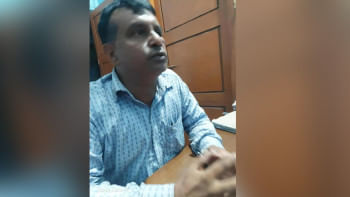Let's not blame it on bigotry alone

If premeditated murders aren't accidental deaths, and if planned meetings aren't chance encounters, then the attacks on the minorities in Gobindaganj, Nasirnagar and Ramu aren't hate crimes. Minorities are irresistible targets because they don't have the organised strength to resist an attack. It's also because an attack on them creates greater impact just like small investments bring high returns. All three attacks allegedly were driven by calculated convenience instead of impulsive convictions.
The pace accelerated each time. The horror of Ramu repeated itself in Nasirnagar after four years, but resurfaced in Gobindaganj nine days after Nasirnagar. The targets of this horror have always been the houses of prayer, homes and people. The victims changed from Buddhists to Hindus to the indigenous Santals. The victimisation remained constant.
Everything, each time, went through the same old motion. The two leading political parties blamed each other. The same hackneyed clamour for judicial investigation and the same disturbing disappointment over the role of the local administration were heard. The police actions in all three cases have been the spitting image of each other, curiously searching for needles in the haystack of evidences.
History repeats itself, because human beings never learn from their mistakes. Ever since Ramu went up in flames, this nation has remained in the dark about who was responsible for that atrocious act. Discerning minds have drawn their own conclusions, convinced that the apparatchiks of major political parties had worked in cahoots. A brotherhood of crooks masterminded that madness to achieve their common goals. Instincts unite some men as readily as ideologies divide them.
Gobindaganj has been a sequel to Nasirnagar as much as Nasirnagar has been a sequel to Ramu, each tragedy having a longer run each time like radiation after a nuclear blast. The radiation of rage continued in the last two locations for several days despite the heightened attention of the entire nation. It continued despite the police presence meant to secure the victims and prevent further tension. In the criminal way, Gobindaganj and Nasirnagar have been incremental improvements over Ramu as evil tested successively more resilient.
In a few days or weeks, every incident falls off the page. Money and help pour into the flashpoint to rebuild structures razed to the ground. Soon, anguished minds pick up their lives and move on. The wounds heal except for the unfortunate some, who struggle with the pain longer than others.
But is it fair to blame this ever-repeating cycle of misfortune on bigotry alone? It may give us the comfort to think that every attack is a hate crime for the same reason placebos make patients feel better. Human minds seek closure on problems like one has to turn off the lights before going to bed.
There may have been a touch of bigotry in what happened in Gobindaganj, Nasirnagar and Ramu like certain experiences tap into primal instincts. The savage sentiments may have rallied the rogues in the same manner battle cry arouses aggression in warriors. But there were political calculations, wheeling and dealing, power posturing and overriding motives that should explain why the local administrations sat on their hands every time the goons unleashed terror.
If this is bigotry, then every rapist is a bigot because he is stubbornly intolerant of the sanctity of a female body. Then every loan defaulter is a bigot because he doesn't like the idea of banks recovering their money. Every thief or robber is also a bigot because of his contempt for rightful ownership.
The truth is that there are minority groups within the majority population who thrive on criminal propensities. These groups look for minorities for the same reason cowards pick easy targets. These groups don't have any conviction or conscience but their sick minds driven by impulses constantly seeking instant gratification.
Every day in this country people are being dispossessed from their lands and homes, women and children are being molested, and men are getting killed, abducted and intimidated. What happened in those three places is the concentrated expression of these pervasive crimes committed daily. This isn't bigotry by God, but spikes in the cruelty that the majority has been inflicting on itself.
The real reason, if anybody cares to know, is worse than bigotry. It's more than stubborn and complete intolerance of any creed, belief, or opinion that differs from one's own. It's utter contempt for humanity that at once combines depravity with delusion backed by double standard. It doesn't hesitate to burn the house to roast the pig.
The name of that game is hypocrisy, deadlier than hatred and crueler than criminals. It's bigotry wrapped in brutality inside pretension. Blaming only bigotry ignores the other two instigators. The horror persists due to our fixation on finding under the lamp post what's lost in the dark alley.
The writer is the Editor of the weekly First News and an opinion writer for The Daily Star. Email: [email protected]

 For all latest news, follow The Daily Star's Google News channel.
For all latest news, follow The Daily Star's Google News channel. 



Comments